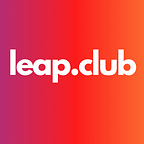eshna kutty is a flow artist, movement therapy practitioner, dancer and hooper, and this is her story.
i always spent a lot of time indoors, growing up. i was an only child with a journalist mum and filmmaker dad; both of whom travelled a lot, so i spent a lot of time alone with my thatha (grandpa) and dog, jigsaw. my atypical parents encouraged me to study psychology instead of science, since it was a growing field, and that largely influenced my empathy and understanding of the world.
i discovered hooping by accident on youtube, and made my first one with pvc pipe! i ended up spending a lot of time in my 9th and 10th grade playing around with it, and learnt most of what i know on that one horrible hoop. it wasn’t even a hobby at the time, it was sheer curiosity and the want to pass time. i even discovered an online community called “hoop city”, with hoopers from different parts of the world too. there were none from india at the time!
i later came across the ‘juggling convention’ in goa. i decided to visit it, and to my surprise, discovered a whole world of flow arts. i pestered the few hoopers i met there to teach me more. hooping eventually became a full-blown hobby, but it was still never my core identity. i’d put out my practice videos out on instagram too, without thinking too much of it. this continued for a good decade, and i even took a few workshops in college; but i never thought of monetising it, because, well, it’s hula hooping! how much would it even pay?
i also began dancing in college, and was thrilled when i discovered the emerging field of ‘movement therapy’; it combined dance, movement and my studying of psychology, so i knew i had to explore this further.
in early 2020, i was invited to a festival of creators to do a workshop on movement therapy. i had just started to take hooping more seriously and had a bit of a following, but didn’t know where to take it, so i got lunch with a marketer i met and told him everything i wanted to do, and asked how i could market it better. he looked at me and said, “you don’t have a marketing problem. i think this is a self esteem issue.” he saw right through me! i needed to learn how to dream big.
the pandemic hit soon after, and everything moved online. i started building out a 4-week hooping programme and got some folks on board to help. we did batches of 30 people, and our community started to grow very quickly. people loved the modules, but struggled to find good, lightweight hoops. the ones that were commercially available were very heavy and weren’t portable. my students wanted me to source hoops for them, and suggested that i make them myself. so i did.
i got all my hoops melted down and tried to understand what materials were being used. i found a vendor and a factory to experiment with, devised a hoop into a collapsable form, and wanted to launch the next year. but that’s when one of my videos, ‘sareeflow’ went absolutely viral. things blew up and our mailing list went from 250 people to 8000 people overnight. suddenly everybody wanted to learn hooping!
the good part was that it opened up this market to lots of new people. there was so much demand for lightweight, dance-friendly hoops, so we took a huge gamble and launched 5 months early!
things were going great, sales skyrocketed, and it was a good few months. but i felt like a had to suppress the artist in me to run the business. i was practically living in front of my laptop. i wasn’t practising for myself, was demotivated, and quickly reaching burnout. i was hustling, but felt like i was hitting a wall. i realised that i had to also feed the artist in me, so i made the tough decision to cut back for a while. i needed to get back and feel the joy of why i did what i did. i’d been hooping alone for more than 12 years, so i decided to travel and meet my favourite hoopers from different parts of the world. i spent a couple of months just enjoying the art form, and i feel like i’ve fallen in love with it all over again!
i’ve had to find a balance between being an artist and a businesswoman. now with this fresh perspective, i’ve realised that this isn’t something i could do as a ‘job’, or something that i’d ever sell off. i’m so attached to the art form and the way it enables building communities.
there’s no sense of competition, and no one needs to achieve it all tomorrow. this is for the long haul.”
